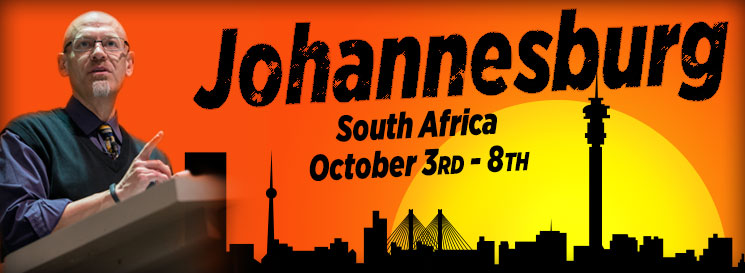According to one thread on the CA Forums, a small group of folks are praying the rosary for my conversion today. I mentioned this on the DL last night. And I noted then the fact that I find this extremely odd. I’m a Calvinist. I believe God can change the heart, and I’m consistent in believing that and accepting the ramifications of that belief as well. But Roman Catholics in general deplore Reformed theology, and more than one, upon hearing my beliefs expressed in the words of Romans 9 (many of whom had never actually read the chapter themselves, and were shocked at what it said) have literally cried out, “I would never worship a God like that!” To which I have replied, “I know.” Anyway, I wonder what this repetitive prayer for my conversion is supposed to accomplish, given Rome’s theology? Is Mary supposed to somehow make all the internal contradictions and errors of Roman theology disappear from my memory? Will these rosaries remove from me the deep-seated joy at knowing I am clothed in the righteousness of Christ, at peace with God, secure in Him, so that I will really want to jump on the treadmill of “do, do!” and desire to seek my own righteousness and doing of good works in a state of grace so as to merit eternal life?
To all those joining in this rosary gathering: may I suggest that my conversion would require that vital element of truth, and that since I am convinced the Bible is the Word of God, you will have to prove first and foremost that what you wish me to convert to is what the Apostles of my Lord Jesus Christ taught and believed? All the repetitive prayers while fingering beads on a string cannot change the facts that have been so plainly established in a decade and a half of public debates—debates the vast majority of those engaging in these prayers have never even bothered to view.
Next, I really appreciate Bill Rutland’s post on the Catholic Answers forums this morning. I’ve felt badly for him in that it seems his co-religionists, to a large extent, have been willing to sacrifice him on the altar so as to have a means of deflecting the results of our recent debate. I’ve seen this many times. “Oh, Roman Catholic apologist X is a holy man, and he’s right, of course…but he’s just not a good debater” is always a good explanation when the Roman Catholic side utterly fails to substantiate its position. In essence, for many of these folks, no debate can ever prove Rome wrong. Rome is right, by definition. If the Roman position loses in debate, even consistently, there must be some other reason than that one. In any case, I think Rutland has more than sufficient grounds to complain of his treatment at the hands of his own.
Finally, Phil Porvaznik, a sometimes Roman Catholic “apologist” of sorts (more a humorous gadfly than a serious apologist) added to the thread these observations:
Although if I ever debated White I would have a well prepared statement on John 6:44, since that’s been his pet text for 15 years. Matatics dealt with it in their first debate on Eternal Security long ago, the text is talking about the elect who God knows (and we don’t) will be saved. The elect cannot fall away. No one can come to Jesus unless the Father draws them. No problem. But according to John 12:32 Jesus draws all and 1 Tim 2:3-6; 1 John 2:2 says Christ desires the salvation of all and died for all. So some are not drawn in an ultimate sense. They are not ultimately saved.
And then I follow up with 5 or so quotations in rapid fire from (Arminian) Protestant scholars who disagree with White’s interpretation of John 6:44. Hooray I win that round of cross-examination.
I hope my Arminian friends will note Porvaznik’s words. You will note that Phil would never want to actually engage the text with me—he knows better. John 6:37-45 is one of my “favorite” passages, mainly because the more people I interact with on it over the years, the more convinced I become that no one can offer a semi-meaningful exegesis that does not present Reformed theology, Phil included. Matatics did try to get around it many years ago, and failed, for he had to insert an entire extra-textual concept just to hold things together. Yes, the text is talking about God’s elect (v. 37). Quite true: we do not know the identity of the elect, either. But at this point Phil demonstrates he has never read (or is ignoring) The Potter’s Freedom and Debating Calvinism by putting on his Dave Hunt persona and arguing in identical style. I would most enjoy Phil’s throwing out this kind of paper-thin defense of his views. And Phil knows it, which is why he will never expose himself to such an encounter.



